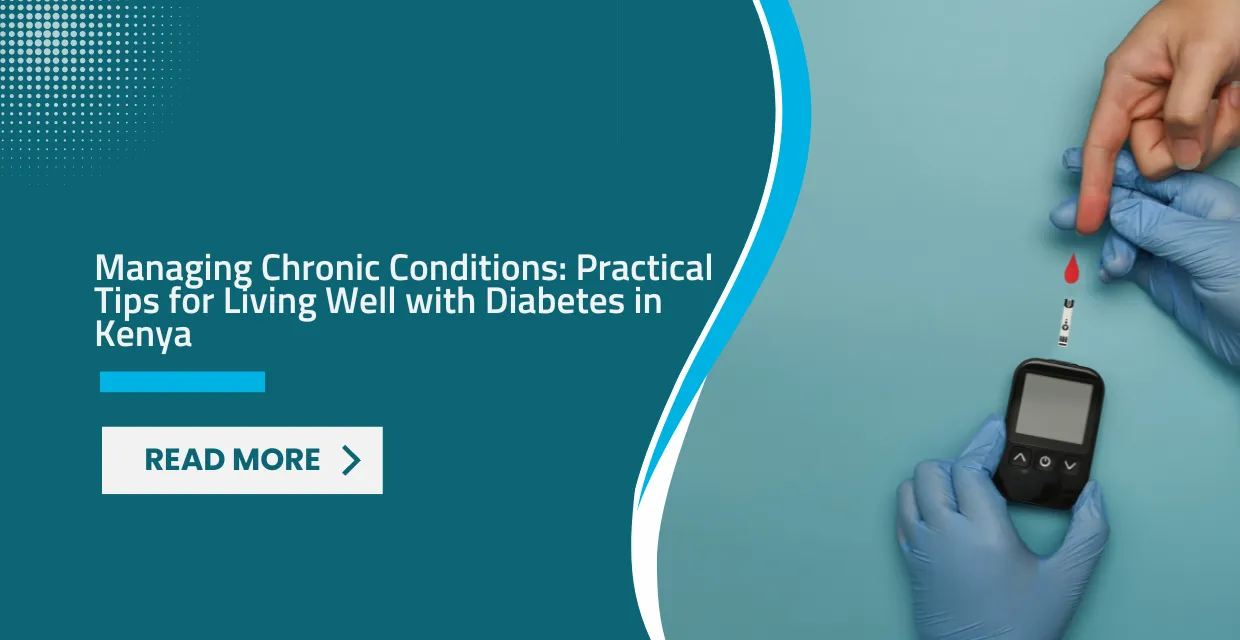Busting Myths About Pneumonia: World Pneumonia Day Edition
Pneumonia is a common yet potentially deadly infection that affects the lungs. Despite its prevalence, many myths surround this condition. In recognition of World...

Living with diabetes in Kenya poses unique challenges, yet with proper management and care, individuals can lead fulfilling lives. The condition, which affects the body's ability to produce or use insulin effectively, necessitates ongoing attention to diet, exercise, and medication. The Best Hospital in Kenya plays a crucial role in providing support, education, and treatment for diabetes management, empowering patients to take control of their condition.
Diabetes comes in primarily two forms: Type 1, where the body does not produce insulin, and Type 2, where the body does not use insulin properly. Both types require careful management to prevent complications such as heart disease, kidney failure, and vision loss.
A balanced diet is pivotal in managing diabetes. Incorporate a variety of foods rich in nutrients and low in fat and calories. Focus on whole grains, fruits, vegetables, and lean proteins. Portion control is crucial to manage blood glucose levels effectively.
Regular Meal Times: Eat at consistent times to help regulate blood sugar.
Carbohydrate Counting: Understand how carbs affect your blood sugar and keep track of your intake.
Limit Sugary and Processed Foods: Reduce consumption to prevent spikes in blood sugar.
Regular physical activity is essential for managing diabetes. It helps control blood sugar levels, reduces cardiovascular risk, and promotes overall well-being.
Consistency: Aim for at least 30 minutes of moderate exercise most days of the week.
Variety: Include both aerobic exercises like walking or swimming and strength training.
Monitor Blood Sugar: Check your levels before and after exercise to understand how activity affects your glucose levels.
For many with diabetes, medication is a cornerstone of management. Whether it's insulin injections for Type 1 diabetes or oral medications for Type 2, adhering to your prescribed regimen is crucial.
Set Reminders: Use alarms or apps to remind you to take your medication.
Understand Your Medication: Know how your medication works and its possible side effects.
Regular Check-ups: Visit healthcare providers regularly to adjust medication as needed.
Frequent monitoring of blood glucose levels allows for timely adjustments to your management plan. It helps in identifying patterns and understanding the impact of lifestyle choices on your glucose levels.
Use a Glucose Meter: Learn how to use it correctly and keep a log of your readings.
Understand Your Numbers: Know your target blood sugar levels and what to do if they're too high or low.
Stress can significantly affect blood glucose levels. Developing strategies to manage stress is an important aspect of diabetes care.
Mindfulness and Relaxation Techniques: Practices like yoga, meditation, and deep breathing can help reduce stress.
Seek Support: Joining a support group or talking to a counselor can provide emotional support and practical advice.
Educating yourself about diabetes and having a support network is vital. The best hospitals in Kenya offer diabetes education programs and support groups that provide valuable information and a platform to share experiences.
Participate in Education Programs: Gain knowledge about managing diabetes effectively.
Build a Support Network: Engage with friends, family, and support groups who understand your condition.
Regular screenings and check-ups can help identify and manage potential complications early. Annual eye exams, regular foot checks, and monitoring blood pressure and cholesterol levels are essential.
Regular Screenings: Utilize the services of the best hospitals in Kenya for regular health screenings.
Promptly Address Symptoms: Report any unusual symptoms to your healthcare provider immediately.
Managing diabetes requires a multifaceted approach, focusing on diet, exercise, medication adherence, and regular monitoring. With the right strategies and support, individuals living with diabetes in Kenya can maintain a high quality of life. The best hospitals in Kenya are pivotal in this journey, offering the necessary medical care, education, and support. Embracing a proactive approach to diabetes management, with the backing of qualified healthcare professionals, empowers individuals to navigate the challenges of living with diabetes effectively.
Partager cet article